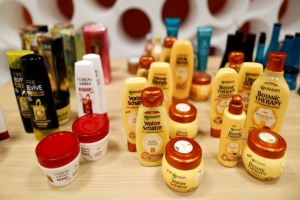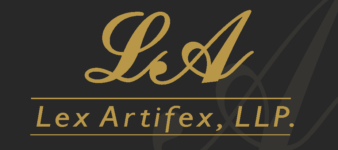
Cosmetics Products (Prohibition of Bleaching Agents) Regulation of Nigeria 2018
Lex Artifex LLP, law firm in Nigeria, has introduced the Food & Drug (F&D) Helpdesk to assist individuals and companies involved in the manufacturing, distribution, exportation and importation of regulated food and drugs products in meeting the requirements set by Nigeria’s National Agency for Food and Drug Administration and Control (“NAFDAC”). Below is the Cosmetics Products (Prohibition of Bleaching Agents) Regulation of Nigeria 2018.
COSMETICS PRODUCTS (PROHIBITION OF BLEACHING AGENTS) REGULATIONS OF NIGERIA 2018
ARRANGEMENT OF REGULATIONS
Commencement:
1. Prohibition of unsafe Cosmetics product
2. Penalty
3. Forfeiture
4. Interpretation
5. Repeal
6. Citation
Commencement:
In exercise of the powers conferred on the Governing Council of the National Agency for Food and Drug Administration and Control (NAFDAC) by Sections 5 and 30 of the NAFDAC Act Cap N1 LFN 2004 and Section 12 of the Food, Drugs and Related Products (Registration, Etc.) Act Cap F33 LFN 2004 and of all the powers enabling it in that behalf, the Governing Council of the National Agency for Food and Drug Administration and Control with the approval of the Honorable Minister of Health hereby makes the following Regulations:-
1. Prohibition of Unsafe Cosmetics Product
(1) No person shall import, manufacture, distribute, display for sale, offer for sale or use any cosmetics, which are adulterated or which contains any substance which when used according to the direction on the label accompanying the cosmetic product is likely to cause injury to the health of the user.
(2) No person shall import, manufacture, distribute, sell, display for sale, offer for sale or use any cosmetic product which contains any of the skin bleaching agents listed in the Schedule A to these Regulations.
(3) No person shall import, manufacture, distribute, sell, display for sale or offer for sale any cosmetic product which contains more than 1% of Hydroquinone and Arbutin as ingredients together.
2. Penalty
(1) Any person who contravenes any of the provisions of these Regulations shall be guilty of an offence and liable on conviction. In case of :
(a) An individual, to imprisonment for a term not exceeding one year or to a fine not exceeding 50,000 or to both such imprisonment and fine; and
(b) a body corporate, to a fine not exceeding N100,000.
(2) Where an offence under these Regulations is committed by a body corporate, firm or other association of individuals every:-
(a) Director, manager, secretary or other similar officers of the body corporate; or
(b) Partner or officer of the firm; or
(c) Trustee of the body concerned; or
(d) Person concerned in the management of the affairs of the association; or
(e) Person who was purporting to act in a capacity referred to in paragraphs (a) to (d) of this regulation, is severally guilty of that offence and liable to be proceeded against and punished for that offence in the same manner as if he had himself committed the offence, unless he proves that the act or omission constituting the offence took place without his knowledge, consent or connivance.
3. Forfeiture after conviction
(1) A person convicted of an offence under these Regulations shall forfeit to the Federal Government-
(a) Any asset or property constituting proceeds derived from or obtained, directly or indirectly, as a result of the offence;
(b) Any of the person’s property or instrumentalities used in any manner to commit or to facilitate the commission of the offence.
(2) In this section, “proceeds” means any property derived or obtained, directly or indirectly, through the commission of the offence.
4. Interpretation
(1) For the purpose of these Regulations, unless the context otherwise requires: –
“Adulterated cosmetic” means any of the following, that is, if –
(a) it contains more than a trace of mercury or any mercury salt which under normal condition of manufacturing practice is unavoidable; or
(b) contains more than a trace of mercury or any mercury salt calculated as the metal or preservative; or
(c) contains beyond 1% hydroquinone and any of the three forms of arbutin;
(d) bears or contains any poisonous or deleterious substances as to render it injurious to a user under the conditions prescribed in its labeling or under such conditions of use as are customary or usual for the cosmetic product; or
(e) has been prepared, packed or held under unsanitary conditions thereby rendering it likely to be injurious to health; or
(f) the container in which it is packed is composed in whole or part of poisonous or deleterious substance which may render the contents injurious to health; or
(g) contains more than the permissible limit of an ingredient; or
(h) Revalidates any information originally indicated on its label or container by the manufacturer.
“Cosmetics” means any substance or mixture of substances intended to be rubbed, poured, sprinkled or sprayed, introduced into or otherwise applied to the human body or any part thereof for cleansing, beautifying, promoting attractiveness or altering the complexion, skin, hair or teeth and includes deodorants and detergent powder.
2. Repeal
(1) The Cosmetics Product (Prohibition of Bleaching Agents, Etc.) Regulations (2005) are hereby repealed.
(2) The repeal of these Regulations specified in Regulations 5(1) shall not affect anything done or purported to be done under the repealed Regulations.
3. Citation
This Regulation may be cited as the Cosmetics Product Prohibition of Bleaching Agents Regulations, 2018.
SCHEDULE A
1. Corticosteroids
2. Mercury and Mercury compounds
Cosmetics Products (Prohibition of Bleaching Agents) Regulation of Nigeria 2018
